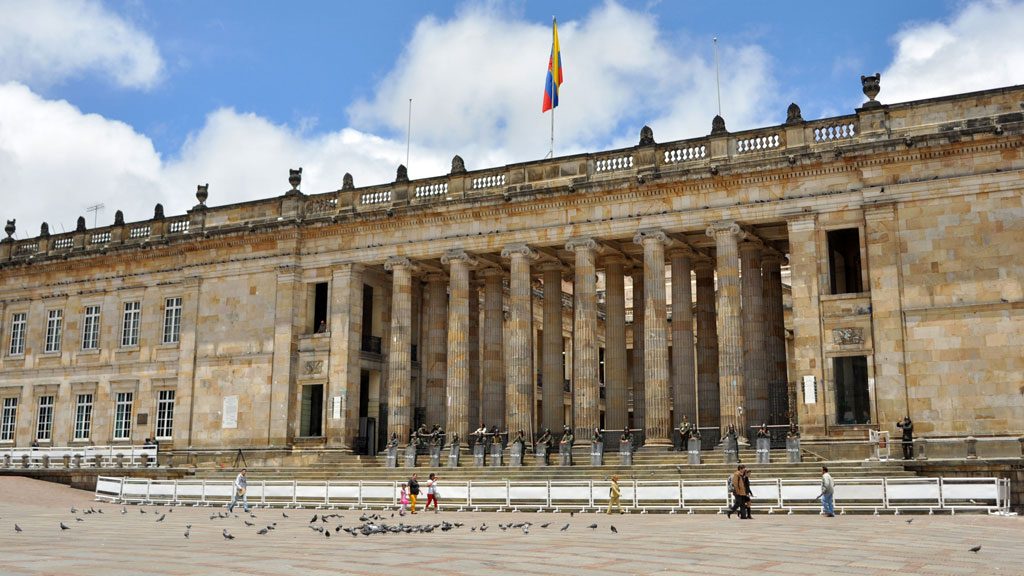Colombia’s Congress will decide how the country is going to “seal” a possible peace deal with leftist FARC rebels, lawmakers said after meeting with President Juan Manuel Santos on Tuesday.
Santos had invited the leaders of the governing coalition in Congress, and the opposition Conservative Party to the presidential palace in Bogota to begin preparations for the legislative aftermath of a deal that would end more than 50 years of war between the state and the rebels.
The leftist opposition that has been supporting the peace talks and the conservative Democratic Center party that opposes the peace talks, were not invited.
Finding a comfortable majority
The president had invited the parties to prepare the ratification of concessions made at the peace talks table in Cuba on rural reform and political participation that will require the amendment of a series of laws and possibly the constitution.
With the votes of his coalition and the moderate wing of the Conservative Party, Santos is assured Congress will not torpedo the possible peace deal.
The political parties will begin a congressional debate within two or three weeks to decide how a peace deal with the FARC will be ratified.
Options for ratification of peace deal
The government prefers a popular referendum or a “mini congress” to ratify the deal as fast as possible. The FARC has consistently asked for a constituent assembly, which can count on the support of Colombia’s business leaders.
Colombia’s business leaders agree with FARC on constituent assembly to seal peace deal
A fourth possibility is that the ratification of the deal follows the normal legislative route, but this is widely considered undesirable because of the strong conservative opposition to leniency for the FARC by former President Alvaro Uribe and his Democratic Center Party, who — in spite of being a minority in Congress — can count on considerable support among Colombians.
Additionally, Colombia’s congress previously corrupted a number of reforms for the benefit of lawmakers, dozens of whom are under criminal investigation for their alleged ties to paramilitary groups that took part in the conflict between the 1980s and early this century.
Peace talks back on track
The conflict
Causes
Inequality
Political exclusion
Weak, corrupt state
Violence aggravators
Drug trafficking
International actors
Following a major crisis between April and July and the intervention of Norway and Cuba, the guarantor countries of the talks, the peace negotiations with the rebels seem to be back on track.
The biggest impediment for a deal, transitional justice, has been removed from the main negotiation teams and lies now with an international panel that will decide how both parties will pay for the tens of thousands of war crimes committed during decades of conflict.
Simultaneously, a sub-commission consisting of top military and rebel commanders are negotiating a bilateral ceasefire that would mean the final end of war between the FARC and the state, even before a peace deal.
Meanwhile, the main negotiating teams are dealing with the finalizing of partial agreements that seek to curb drug trafficking, rural inequality and political exclusion. This main bilateral commission still has to agree on the reparation of the 7 million victims left by decades of war.


